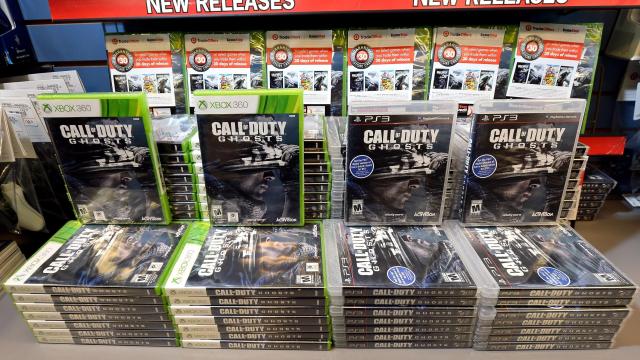It’s official. After months of rumours, the Federal Trade Commission this week voted 3-1 in favour of suing to block Microsoft’s estimated $US69 ($96) billion acquisition of video game giant Activision Blizzard.
The forthcoming legal battle represents the most significant antitrust challenge from the Biden-era FTC to date that has, up until now, had few tangible victories to back up its progressive, anti-monopolist rhetoric. The challenge’s success or failures could play a large factor in determining whether or the Biden administration can live up to its image as an aggressive antitrust maverick.
In a press release Thursday, the FTC argued the acquisition, if allowed to occur, would let Microsoft suppress competitors to its own Xbox gaming console and its growing cloud gaming business. Microsoft, according to the FTC, had already demonstrated a pattern of acquiring big name game studios like Bethesda only to make their titles exclusive to Microsoft’s platform.
“Microsoft has already shown that it can and will withhold content from its gaming rivals,” FTC Bureau Director of Competition Holly Vedova said in a statement. “Today we seek to stop Microsoft from gaining control over a leading independent game studio and using it to harm competition in multiple dynamic and fast-growing gaming markets.”
The FTC vote comes just days after Microsoft announced it intended to bring Activision’s massively popular Call of Duty franchise to Steam and Nintendo consoles. Sony, Microsoft’s primary competitor in the console gaming sector, shot down an offer to keep the franchise on Playstation for 10 years. Sony has opposed the acquisition outright and claimed the deal would have, “major negative implications for gamers and the future of the gaming industry.”
Microsoft Vice Chair and President Brad Smith commented publicly on the FTC’s decision and expressed confidence in the acquisition which he believes would, “expand competition and create more opportunities for gamers and game developers.”
“We have been committed since Day One to addressing competition concerns, including by offering earlier this week proposed concessions to the FTC,” Smith said on Twitter. “While we believe in giving peace a chance, we have complete confidence in our case and welcome the opportunity to present it in court.”
We have been committed since Day One to addressing competition concerns, including by offering earlier this week proposed concessions to the FTC. While we believe in giving peace a chance, we have complete confidence in our case and welcome the opportunity to present it in court.
— Brad Smith (@BradSmi) December 8, 2022
The FTC’s vote to block the Activision acquisition was praised by consumer advocacy groups, some of which had spent months urging regulators to take a more proactive approach towards large acquisition attempts.
“Microsoft’s attempt to acquire Activision is unlawful, and it’s not particularly close,” American Economic Liberties Project Executive Director Sarah Miller said in a statement sent to Gizmodo. “The FTC made the right call. Microsoft’s flurry of last-minute promises to not abuse the market power that they’d gain from this deal reinforce its underlying illegality.”
The agency’s decision also received praise from Massachusetts Senator Elizabeth Warren, who’s previously introduced antitrust legislation targeting growing consolidation across multiple industries.
“Corporate monopolies have had free rein to hike prices and harm workers, but now the Biden admin is committed to promoting competition,” Warren said.
Corporate monopolies have had free rein to hike prices and harm workers, but now the Biden admin is committed to promoting competition.
I urged @linakhanFTC to scrutinize @Microsoft‘s proposed merger with @Activision & welcome this FTC action to block it. https://t.co/hX8PYQq6VB
— Elizabeth Warren (@SenWarren) December 8, 2022
Editor’s Note: Release dates within this article are based in the U.S., but will be updated with local Australian dates as soon as we know more.
